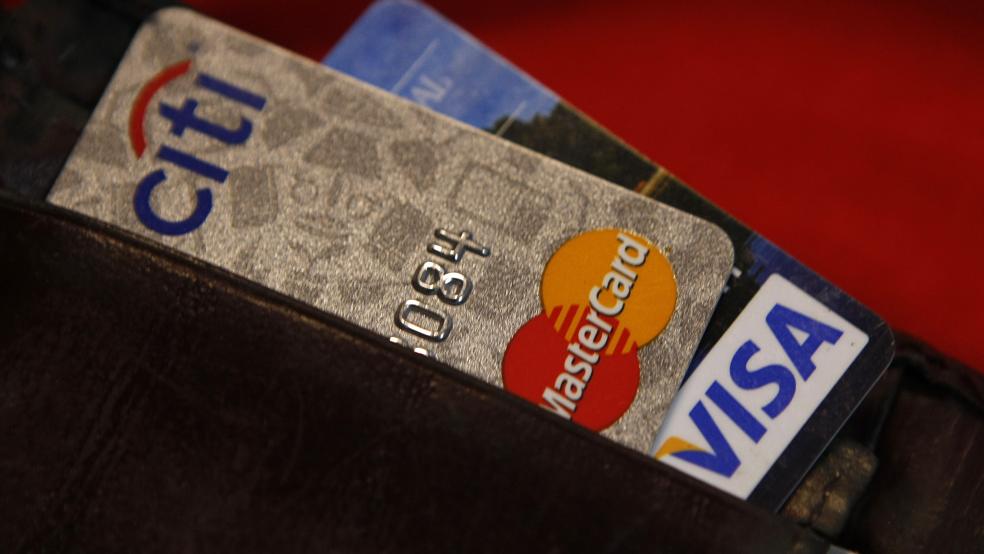When your children's concept of pocket change involves actual change, helping them keep track of their money is pretty easy. But when they start needing serious coin to gas up a sports utility vehicle or travel abroad, you need more sophisticated financing alternatives like a credit card.
Keith Singer saw the light when his teenage son's backpack was stolen at school, and he realized there had been $300 in his wallet. "He lost all his money," said Singer, a wealth manager from Hollywood, Florida.
Related: Last-Minute Tax Moves That Can Still Save You Money
Here are some options, along with what you need to know before you give your teen access to credit:
Your Credit Card
Pros: Adding your child as an authorized user should take a simple phone call, and the child will have her own card to use. You can usually get a separate accounting of their charges.
Cons: The card will have your credit limits. Plus, no restrictions will be imposed on spending. Also, U.S. cards do not always work in foreign countries. They often have high transaction fees abroad, especially for cash advances.
Parents say: It's hard to trust a teen with your own credit. Curtis Arnold, editor-in-chief of cardratings.com (cardratings.com), added his two oldest children as authorized users on his accounts, but never gave them the cards. "We've never felt comfortable handing them a card other than for one-time use," he says. His top fear: they would lose it.
Bank Account with ATM Card
Pros: It may take an in-person visit to a bank to open up an account for a minor, but then you can link it to a parent's account to easily transfer funds. The ATM card makes it easy to get cash while traveling and can be used as a credit card. If you do not sign up for overdraft protection, transactions will be denied when funds are not available.
Related: Want to Retire But Can't? Blame Your Kids
Cons: Beware that fees can rack up if the account does go negative or below a required minimum. Debit cards do not offer all the same consumer fraud protections as credit cards. They may incur overseas transaction or ATM service fees, and they require parental attention to keep adding funds.
Parents say: When one of Elizabeth Powell's 16-year-old triplets went to England last summer, he opened up an account at his dad's credit union. Then she transferred in several hundred dollars a month. The teen was able to use the debit card for his needs in British pounds, with minimal fees. "The system worked perfectly," Powell said.
Keith Singer says one additional benefit for the bank account he opened for his son, who is now 17, is that it encouraged the teen to deposit his summer earnings.
Prepaid Debit Card
Pros: Getting one is easy, and most have slick mobile interfaces. As they are not linked to any bank account or credit line, there are fewer worries about overspending, loss or identity theft. Some cards, like Oink (www.oink.com/oinkcard), allow parents to restrict spending in certain categories, like alcohol.
Related: Get Ready for a Spring Consumer Spending Surge
Cons: Some prepaid cards come with lots of hidden fees just to access your own money. They do not help build a credit history.
Parents say: Arnold likes the Bluebird card (www.bluebird.com/) offered by Wal-Mart Inc and American Express Co because, he says, "it's like a credit card on training wheels."
Most of all, he likes the relative safety of it. His oldest son had a credit card that was compromised while he was a senior in college. "With a prepaid, you don't run that risk because they could wipe out the account, but not the whole checking account," Arnold says.
Personal Credit Card
Pros: Building a credit score at 18 is smart. A typical newcomer does not start at zero, but rather at around 600, says Greg Lull, head of consumer insights at Credit Karma (www.creditkarma.com/). That is in the middle range between the top of 850 and the bottom of 300.
Cons: If your young adult is not ready to handle the responsibility, his credit score will drop, and he will build up debt. Most young adults bottom out at age 21 before turning things around, says Lull.
Parents say: When our kids are ready, we'll go for it. Arnold says of his third child, who is now 17: "Once he gets through freshman year of college, maybe we'll do regular debit card, and then as an upper classmen, get a student credit card for him."




